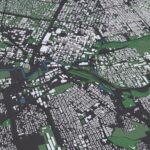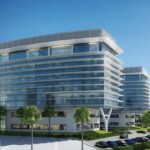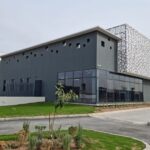Future Trends in Road and Transportation Planning
Outline
Introduction
Road and transportation planning are essential for developing infrastructure that supports efficient movement and connectivity. With rapid urbanization and technological advancements, the future of transportation is set to evolve significantly. This article explores the key trends in road and transportation planning and how these developments will shape the future of mobility.
Overview of Road and Transportation Planning
Transportation planning involves the design, implementation, and management of transportation systems that facilitate the movement of people and goods. This includes roads, bridges, public transit, and other infrastructure components. Modern transportation planning focuses on sustainability, efficiency, and the integration of new technologies to create smarter and more connected transportation networks.
Key Trends in Road and Transportation Planning
- Smart Transportation Systems
Smart transportation systems are transforming the way we plan and manage transportation networks. These systems use technology to optimize traffic flow, reduce congestion, and improve safety. Smart transportation includes the use of intelligent traffic signals, connected vehicles, and data analytics to enhance the efficiency and reliability of transportation networks. By leveraging real-time data, smart transportation systems can dynamically adjust to changing conditions, leading to smoother and faster journeys.
- Sustainable Infrastructure Development
Sustainability is a key focus in modern transportation planning, with an emphasis on developing infrastructure that minimizes environmental impact and promotes resource efficiency. This includes the design of energy-efficient transportation systems, the use of sustainable materials, and the integration of green spaces. Sustainable infrastructure also involves promoting public transit, cycling, and walking as alternatives to car travel, reducing carbon emissions and improving public health.
Benefits of Modern Transportation Planning
Modern transportation planning offers numerous benefits, including reduced traffic congestion, improved safety, and enhanced environmental sustainability. By integrating smart technologies and sustainable practices, transportation planners can create networks that are more efficient, resilient, and adaptable to future challenges. These improvements lead to better quality of life for residents and more sustainable urban growth.
Best Practices for Transportation Planning
Effective transportation planning requires a comprehensive approach that considers factors such as population growth, land use, and environmental impact. Best practices include stakeholder engagement, the use of advanced modeling tools, and the adoption of flexible design strategies that can accommodate future changes. Collaboration between planners, engineers, and the community is also essential for creating transportation systems that meet the needs of all users.
Expert Insights
Transportation planners at CCG emphasize the importance of adopting a forward-thinking approach that anticipates future trends and challenges. By staying informed about technological advancements and environmental considerations, planners can design transportation networks that are both innovative and sustainable, ensuring long-term success and adaptability.
Conclusion
The future of road and transportation planning is shaped by trends such as smart transportation systems and sustainable infrastructure development. By embracing these trends and following best practices, planners can create transportation networks that are efficient, sustainable, and capable of supporting future growth. Contact our team at CCG to learn more about how we can assist with your transportation planning needs.
Frequently Asked Questions
Smart transportation systems use technology to optimize traffic flow, reduce congestion, and improve safety. These systems include intelligent traffic signals, connected vehicles, and data analytics, all of which contribute to more efficient and reliable transportation networks.
Sustainable infrastructure benefits transportation planning by minimizing environmental impact, promoting resource efficiency, and supporting alternatives to car travel. This approach leads to reduced carbon emissions, improved public health, and more sustainable urban growth.
Modern transportation planning offers benefits such as reduced traffic congestion, improved safety, and enhanced environmental sustainability. By integrating smart technologies and sustainable practices, planners can create networks that are more efficient, resilient, and adaptable to future challenges.
Get in Touch
If you're looking to develop future-proof transportation plans, get in touch with us today. Our team at CCG is ready to help you design efficient and sustainable transportation networks.













